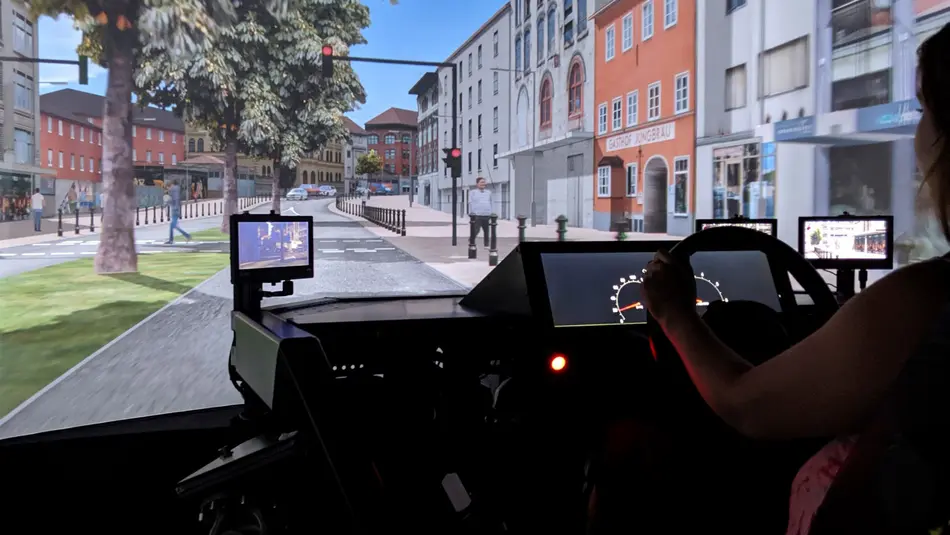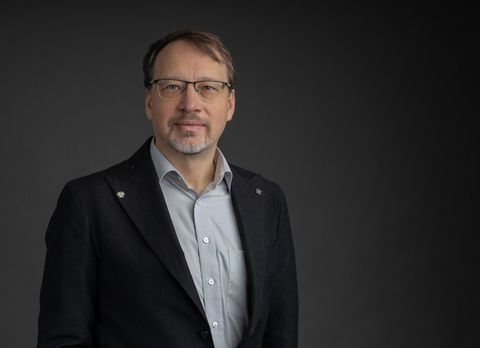
The potential applications of the large-scale research device in interdisciplinary research can be illustrated by an example from the field of automated driving. In 2018, 3275 people died in traffic accidents in Germany. In the future, automated vehicles should make it possible to reduce the number of traffic fatalities enormously. One approach to highly automated driving is to allow humans to leave control to the vehicle without monitoring the traffic themselves, but to take back the wheel themselves within a short period of time if prompted by the vehicle.
In the driving simulator, it is possible to investigate how reliably the interaction between humans and technology functions without endangering human life and health. New solutions can be tested and gradually improved. The development of the required technology can take place under reproducible traffic conditions with the involvement of real people.
In general, the use of a driving simulator offers considerable advantages compared to testing on test tracks or in road traffic. Thus, simulated driving is possible with comparatively little effort already during the development of new technical systems. This enables new approaches to software development in the automotive sector, including the possibility of training artificial intelligence systems in the driving simulation.
The large-scale research device driving simulator is thus an excellent means for interdisciplinary research. Without the researchers from the various disciplines and their successful collaboration, there would be neither the large-scale research device nor future results. The leading minds behind the driving simulator form the consortium. They are all part of the joint research network Traffic Engineering and Road Safety (FVV) of Trier University and Trier University of Applied Sciences, with the disciplines of electrical engineering (Prof. Dr. Matthias Scherer), computer science (Prof. Dr. Jörn Schneider), mechanical engineering (Prof. Dr. Hartmut Zoppke) and psychology (Prof. Dr. Christian Frings, Dr. Birte Möller).
| Consortium | Prof. Dr. Matthias Scherer (Electrical Engineering - FB Technik), Prof. Dr. Jörn Schneider (FB Informatik), Prof. Dr. Hartmut Zoppke (Mechanical Engineering - FB Technik), Prof. Dr. Christian Frings (Psychology - University of Trier), Dr. Birte Möller (Psychology - University of Trier) |
| Duration | since December 2015 |
| Funded by | Carl-Zeiss-Foundation |
| Funding amount | 473,500 € |

You are leaving the official website of Trier University of Applied Sciences